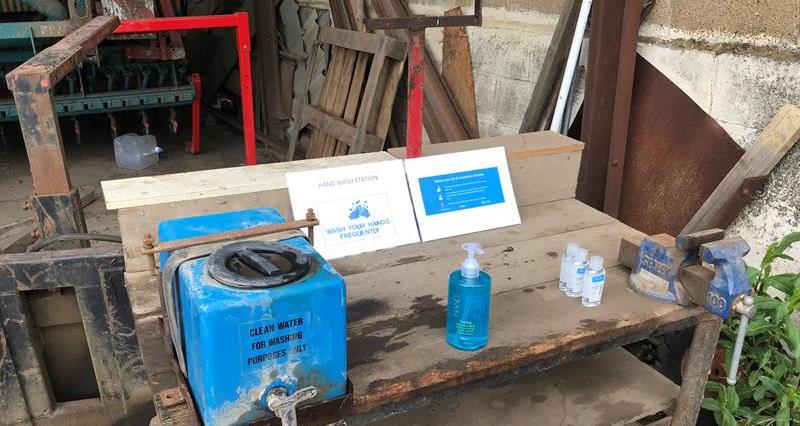The global pandemic has affected farming businesses in a number of ways, from disrupted markets to labour problems. As the world begins to adapt to a 'new normal', and some of the issues faced by British agriculture begin to be addressed, something that all business owners will have to tackle is to make their workplace COVID-safe.
Keep up to date with the NFU's latest advice on COVID-19 outbreaks on farm and ensuring your business is COVID-secure:
- Actions to take where there is an outbreak of COVID-19 on farm
- Working safely during coronavirus: Advice on making your business 'COVID-secure'?
- How to manage a COVID-19 outbreak
- HSE to spot check compliance with 'COVID-secure' obligations
- NFU members can click here to hear from NFU horticulture and potatoes board chair, Ali Capper, on how to minimise the risk of a COVID-19 outbreak on farm or in a packhouse
The Government issued advice for businesses on how to make their workplace COVID-secure, including outdoor work areas, which includes ensuring social distancing is observed and that suitable hygiene facilities are provided for all staff.
We spoke to NFU County Chairman for Cambridgeshire, Mat Smith about the steps he has taken to make his small farming business COVID-safe, for both the staff and visitors.
Mat farms the family's 400 acre arable farm in the Cambridgeshire Fens, with 3 full time workers, including himself and brother Lloyd, NFU Chairman for Ramsey and Whittlesey branch.
Mat's steps to be 'COVID-safe' on farm
- The team avoid sharing cabs as much as possible - if travelling to the same area, separate vehicles are taken.
- Everyone on farm sticks to their own tractor, and the week's work is planned to avoid tractor sharing. If tractors do have to be swapped, Mat makes sure to give the cab a thorough clean down and leave it for 48 hours before being used by a new driver where possible.
- The same goes for using specific pieces of machinery such as the telehandler - where possible, the same person uses the telehandler every time.
- Extra care is taken with things such as the cap on the fuel storage tank - the number of people using it is limited as much as possible, and it is regularly cleaned down carefully.
- Extra handwashing facilities have been installed across the site, and extra gloves are kept in cabs, to encourage more frequent hand washing and the use of disposable gloves where possible.
- The team try not to share tools, but where this can’t be avoided, tools are cleaned carefully and left for 48 hours before being used by somebody new.
- Where possible and not causing a security issue, barn and shed doors are left open, in order to limit the number of hands on handles.
- Visitors are only coming onto farm where absolutely necessary. Mat and Lloyd host a number of field trials for crop protection products and seed treatments. Currently, inspections and monitoring take place over the phone or video as much as possible.
There are some current and upcoming activities that pose a more difficult problem.
Putting out irrigation lines is difficult to do whilst maintaining social distancing, therefore extra hygiene precautions are being taken.
Harvest is not far off, but Mat thinks it may take slightly longer than usual this year. Whereas normally, drivers would swap in and out to keep the combine running all day, this year the staff will avoid cab sharing. Having a designated combine driver and trailer driver means regular breaks have to be taken, but avoids the risk of transmission of using multiple drivers of the same vehicle.
It is likely that some social distancing requirements will still be in place by September, when potato harvesting and grading takes place. Alterations will need to be made to the grading line, possibly using screens or plastic sheeting to separate staff, and providing as much space as possible.
